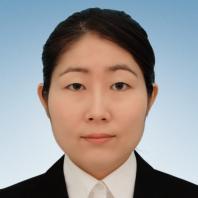![]()
![]()
Research Support Office Research Advancement Division. Tokyo University of Agriculture and Technology
| TEL | +81-42-367-5944 |
|---|---|
| FAX | +81-42-367-5946 |
This program is supported by MEXT’s scientific technology human resource development fee grant, "Program to Disseminate Tenure Tracking System".
Home > Introduction of our tenure-track faculties > Takahashi Sakura

Takahashi Sakura

| Affiliation | Institute of Agriculture |
|---|---|
| Division | Division of Biological Production |
| Research field | Horticulture, Plant factory |
| Keyword(S) | Fruit tree, Vegetable, Plant factory, Environmental control |
| Url | https://web.tuat.ac.jp/~engei/index.html |
| Research experience | ・April, 2021 - March, 2022: Program Specific Researcher (Industrial-Academic Collaboration), Tokyo university of agriculture and technology |
|---|---|
| Educational background | ・March, 2016: Bachelor of Agriculture at Tokyo university of agriculture and technology |
| Awards | * The latest information is shown at the member's website. |
| Selected papers and publications | * The latest information is shown at the member's website. |
The gross agricultural production of horticultural crops increased along with the increase in consumption during the period of high economic growth in the 1960s, reaching about 3.4 trillion yen in 2020, an increase of 11.5 times compared to 1960. The percentage to the total gross agricultural production, assuming that the cultivation sector is 100, the horticultural sector was 19% in 1960, but it became 61% in 2020, and horticultural production has become an important agricultural production. In addition, the cultivation method of horticultural crops has changed with the advancement of technology. When pipe frame greenhouses became widespread after 1955, cultivation in a plastic house increased rapidly from the latter half of the 1960s, and a year-round production system for tomatoes and cucumbers was established. In the 1990s, the operation of plant factories capable of environmental control and automation began, and the number of facilities increased due to support measures for the spread and expansion of plant factories in 2009. In March, 2021, number of facilities was reached to 390.
At Tokyo University of Agriculture and Technology, a plant factory was built in 2011 for the purpose of cultivating fruit trees. Professor Emeritus Isao Ogiwara established the continuous flowering and fruiting method for blueberries, that is, cultivating blueberries under the environment of low-temperature and short-day in a closed room with artificial light and it allows year-round production.
I have been conducting research on quality, functionality, year-round production, etc. of fruit tree and vegetable using plant factory and greenhouse. Especially in blueberry, I have been producing low-potassium fruits for patients with kidney disease who have restricted potassium intake and have been try to put into effect the year-round production in plant factories using the method of continuous flowering and fruiting. I will continue to control the environment such as light, temperature, and nutrient solution, to improve fruit quality and productivity by the cultivation method, and proceed with research with the aim of being able to eat delicious fruits every day.
TUAT's tenure-track project provides support for independent research, such as allocation of startup funds and independent research space, and reduction of the burden of on-campus work and classes during the tenure period. I think that provides the environment which allowing young researchers to concentrate on their research. It is said that research ability is declining in Japan, but I think that during the tenure period, I will be able to face my own research and improve a research ability. In addition, the tenure-track has a five-year term, but if you pass the examination, you will be able to take up the post after that, so you can push forward with the goal of a new post.
I will continue to devote myself with the following three aspirations. First, I believe that plant factories are important for future agriculture. By controlling the environment, I will aim to produce more delicious crops and to produce them year-round so that they can be eaten at any time. Second, I want to be a researcher who observes the state of plants every day and does not overlook even small changes. Third, I have mainly used blueberries as a research material, but I would like to challenge other crops and expand the scope of my research.